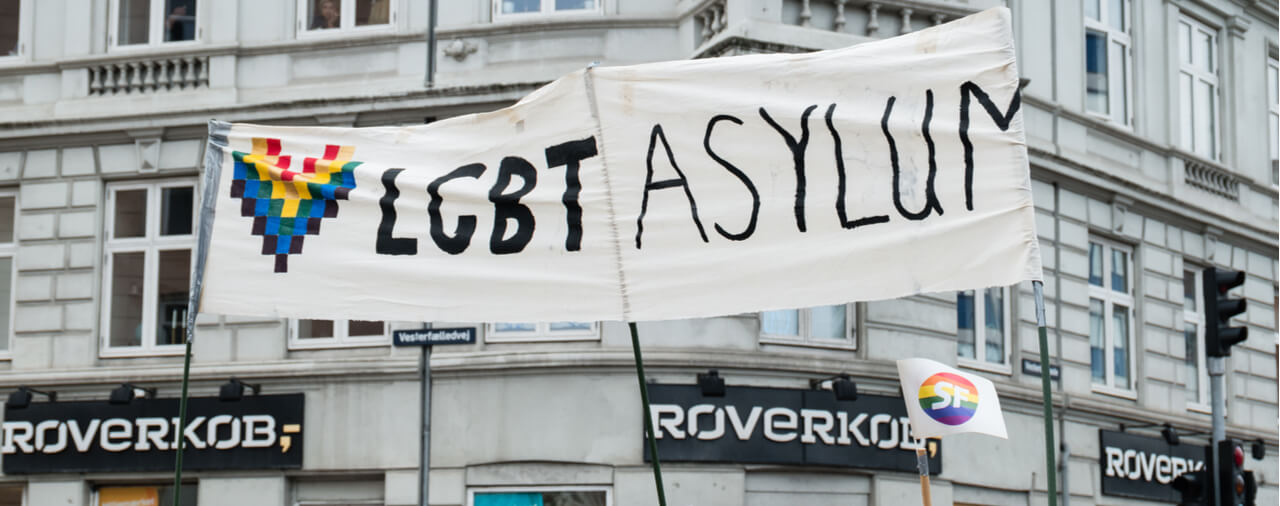New Rules - New Hopes
After the reports of the particular hardships faced by the LGBT applicants for asylum in the United States have surfaced in the media (NY Times asylum [link]), and while the situation with the LGBT rights and freedoms continues to deteriorate in many parts of the world, the Obama administration has issued new rules, which, hopefully, will make the perilous journey of the persecuted LGBT persons towards safety in the United States a little easier.
The new guidance contains specific definitions and sensitive issues to be addressed by the asylum officers during interviews, as well as certain questions that should be avoided, especially those pertaining to specific sexual practices of the gay and lesbian applicants. These new instructions are set in place to alleviate the additional trauma and stress that some of the applicants may go through in the process of obtaining asylum. The officers are also advised to keep in mind that applicants from certain conservative cultures may find it hard to describe the circumstances relating to their private lives as well as easily adjust to the notion of “coming out” even in a new gay friendly environment.
The USCIS memo further instructs the immigration officials to refrain from stereotypical notions of “gay manners” or “gay looks”. Again, this issue is addressed because LGBT persons from different cultures may not necessarily fit the public stereotypes of the gay community in the West. One of the most important aspects of this memorandum is a new list of possible one-year filing exceptions — the issue that often presents a particularly rigid problem to the applicants who have been present in the U.S. for more than one year — including, but not limited to a recent coming out; recent changes in gender identity; a recent HIV diagnosis; certain psychological diagnoses, e.g., post-traumatic stress disorder (PTSD), or new instances of threats or hostility from the applicant's family to his or her sexual or gender identity.
Another aspect which remains crucial to the applicant's ability to explain the delay in filing of his or her application for asylum is the change of the situation for the LGBT persons in their country of origin (for example, the adoption of new laws targeting the LGBT community, as was recently done in Russia: “No love from Russia — if you're gay” [see blog], or the upsurge in societal violence against gays and lesbians, as was a recent case in Iraq: emo killings of gays in Iraq raise fears [link]). In other words, even if you have resided in the U.S. for more than one year, but now have a real fear of persecution in your homeland because of your gender or sexual identity, you may still be eligible for asylum in the United States.
The issuance of these regulations follows an announcement by Obama's White House that the United States will order all of its government agencies to promote LGBT rights around the world (Presidential Memorandum International Initiatives to Advance the Human Rights of Lesbian Gay Bisexual and Transgender Persons [link]). It is indeed a noble and highly symbolic statement, which, hopefully, will help to bring justice, freedom, and peace to the innocent persons from all over the world who suffer daily because of their sexual or gender identity.
Resources and materials:
USCIS: “Guidance for Adjudicating Lesbian, Gay, Bisexual, Transgender, and Intersex (LGBTI) Refugee and Asylum Claims”, December 28, 2011. International Lesbian and Gay Association, ilga.org. NY Times.
By Ivan Savvine, Senior Paralegal @ The Law Offices of Grinberg & Segal, PLLC.

- Alexander J. Segal's blog
- Log in to post comments
